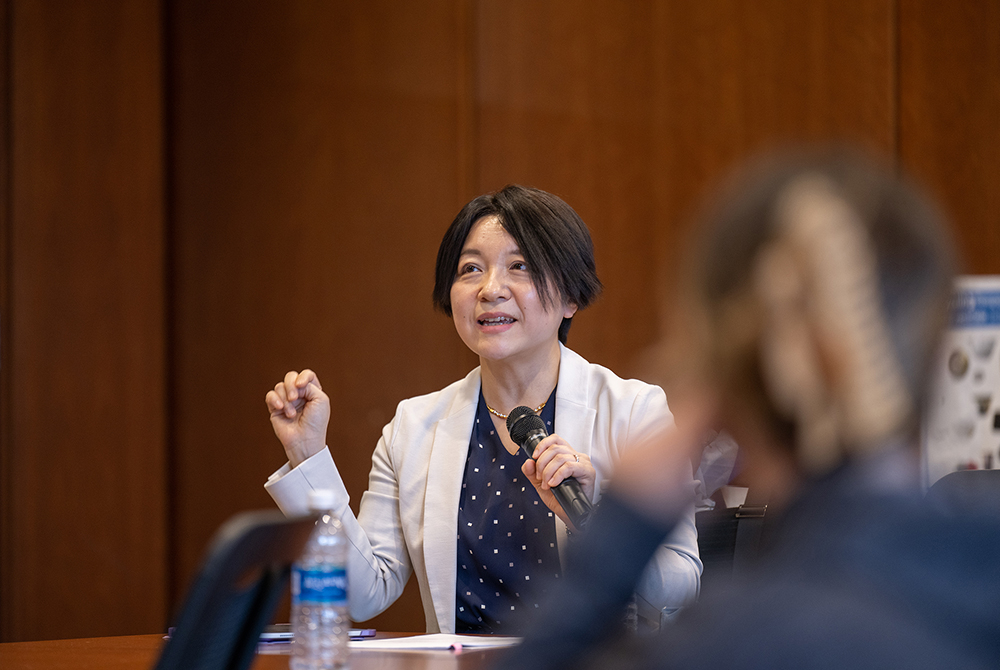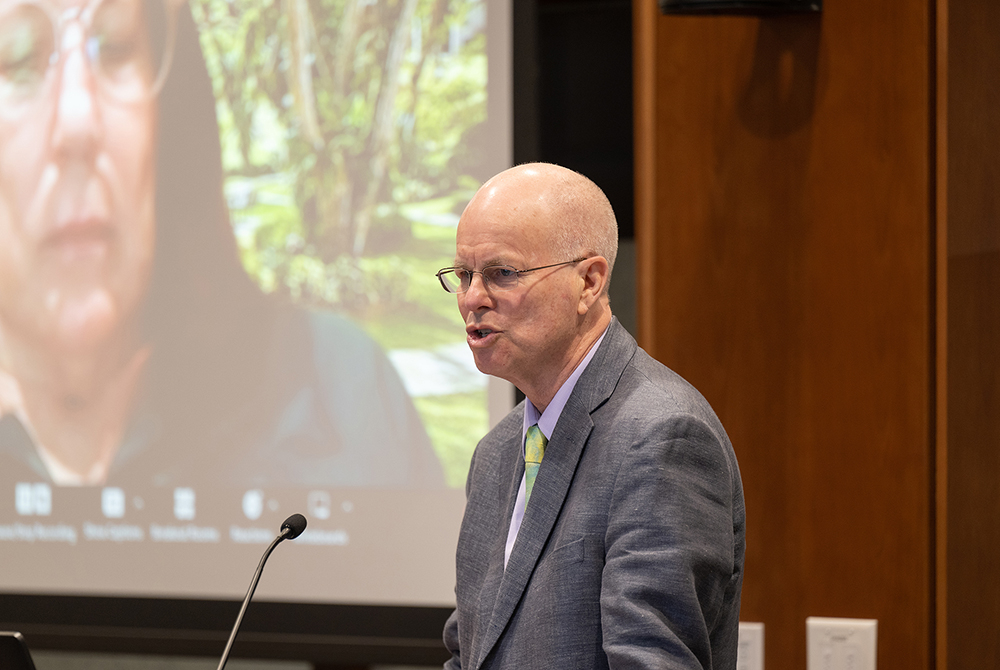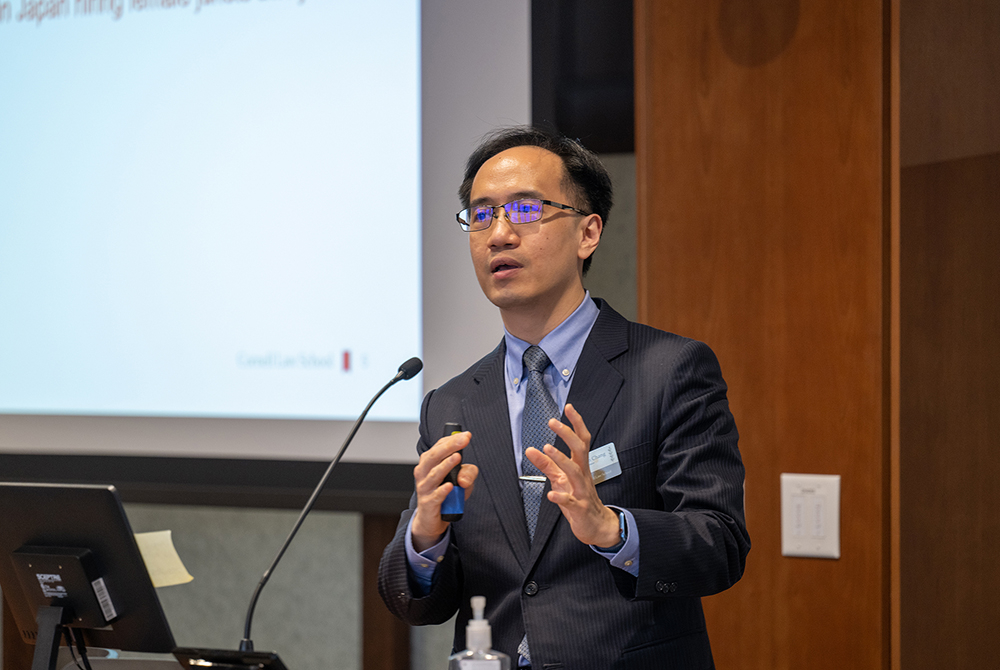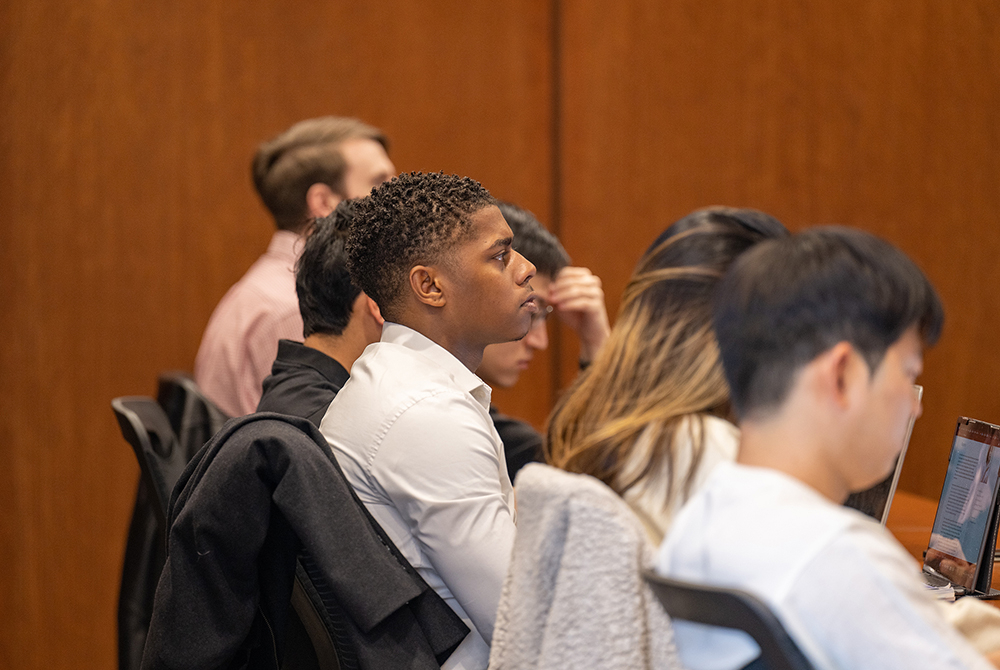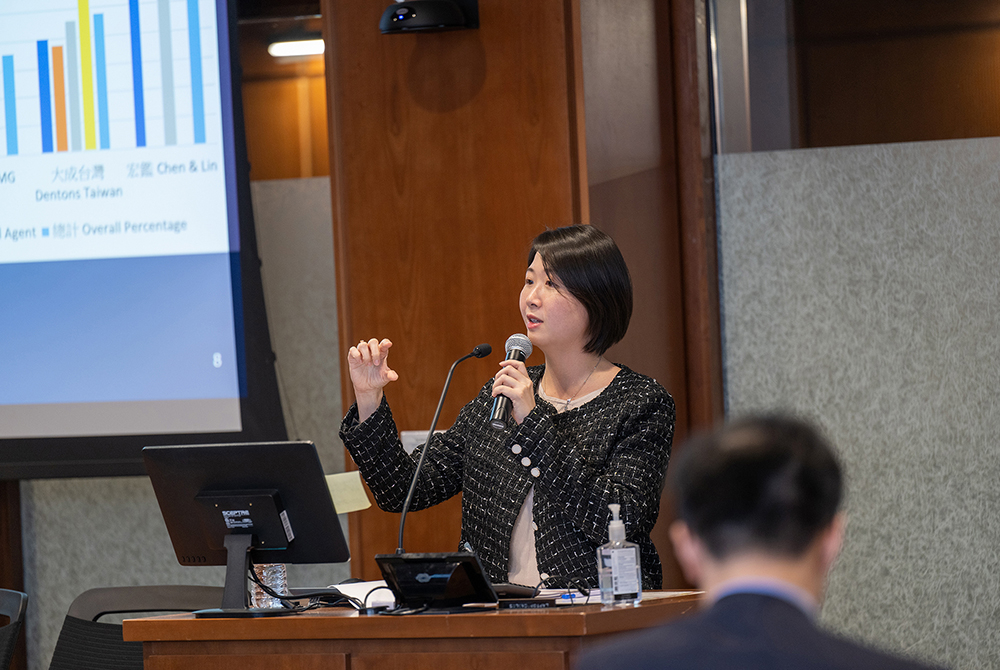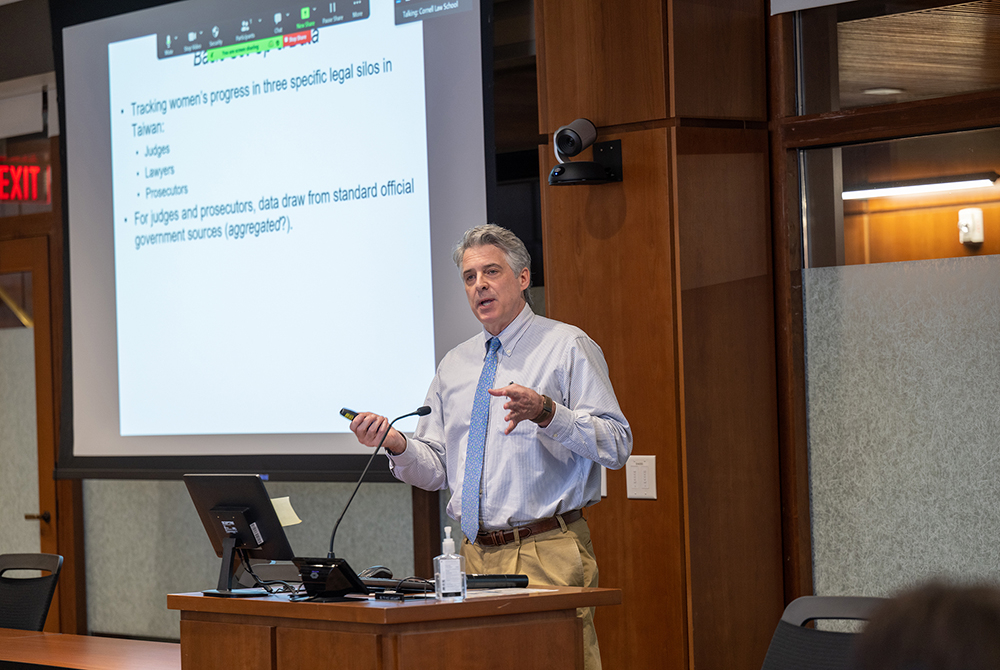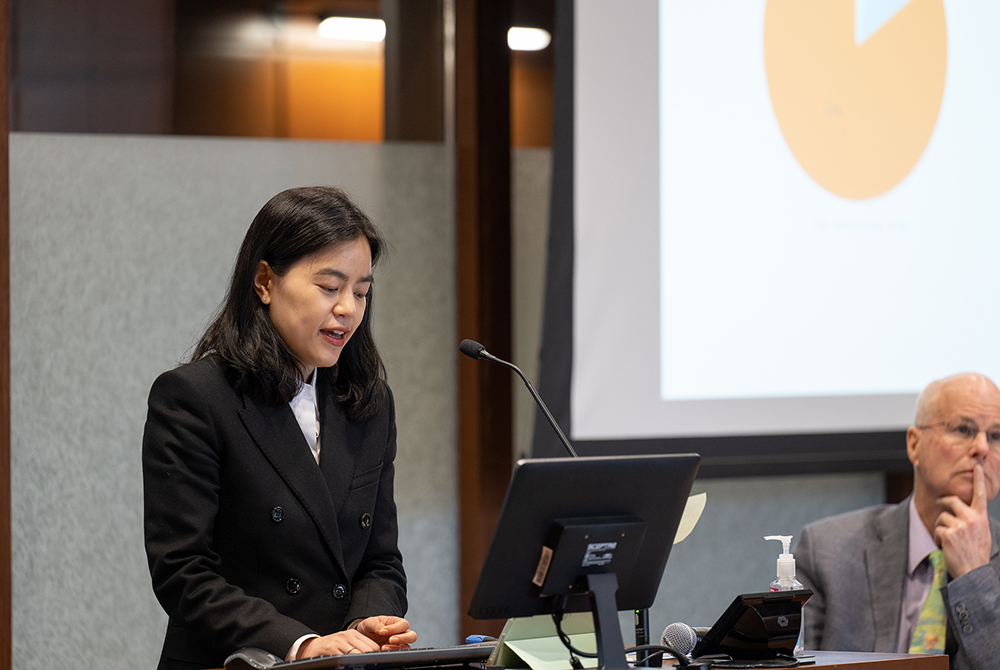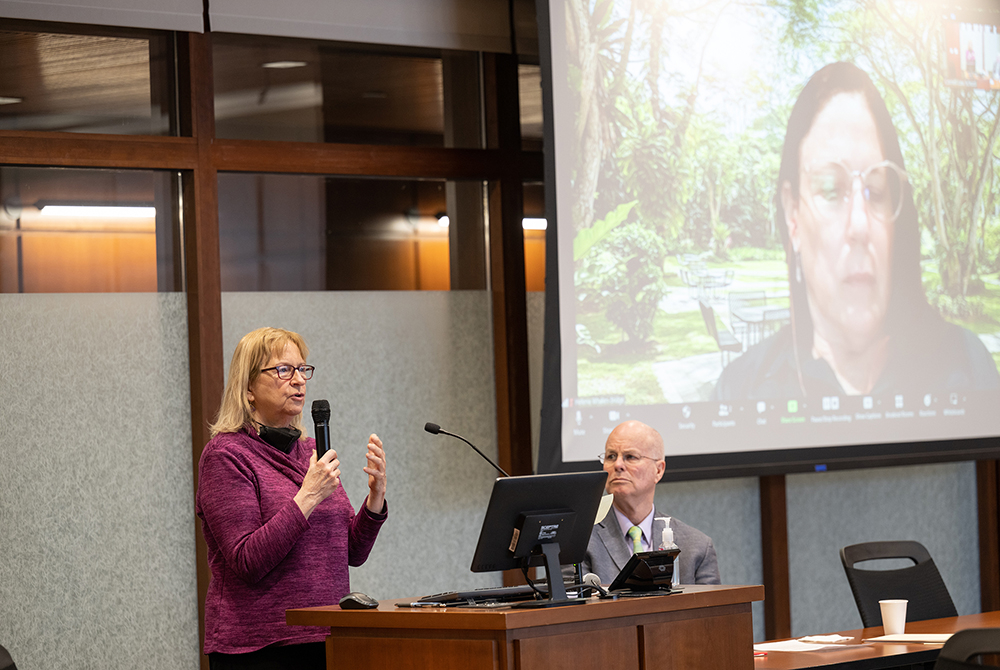This website uses cookies
We use cookies to ensure that we give you the best experience on our website. If you continue to use this site we will assume that you are happy with it.
On April 10 and 11, members of the Cornell Law community and experts from across East Asia convened for “Gender Equality in the Legal Profession in East Asia: Empirical Perspectives,” a symposium co-sponsored by Cornell International Law Journal and the Clarke Program in East Asian Law & Culture.
The topic was selected by Yun-chien Chang, who joined the Law School as the Jack G. Clarke Professor in East Asian Law and director of the Clarke Program in January of this year.
“I consider my main responsibility in these roles to be bridging the gap in understanding legal culture in both East Asia and the U.S.,” says Chang. “A majority of the world population lives in East Asia, so it is important that our students know East Asian legal culture, as they are very likely to handle a case regarding the region in their career. Even beyond practical concerns. It is simply fascinating to know how different legal systems work.”
The symposium featured presenters from China, Japan, South Korea, Taiwan, and Singapore, representing diverse empirical approaches.
On the morning of Monday, April 10, Wei Gao, of Peking University, presented on gender equality as a social process in relation to female judges in Chinese courts; and Xiaohong Yu, of Tsinghua University, discussed her paper, co-authored with Zhaoyang Sun, on gender norms and sentencing disparity in China.
That afternoon, Chin-Fang Hsu, of National Chi Nan University, spoke on gender difference and disparity in Taiwan’s legal profession; Kyoko Ishida, of Waseda Law School, shared insights on the gender gap in Japan’s legal profession, and Chang presented a paper he co-authored on gender equality in estate distribution.
On Tuesday, Helene Whalen-Bridge, of the National University of Singapore, shared stories of gender impact in Singapore’s legal profession; and Hai Jin Park, of Hanyang University School of Law, discussed an experiment assessing gender bias on a digital platform for lawyers.
Providing commentary for these presentations were Cornell Law’s Kristen Underhill, professor of law; Michael Heise, William G. McRoberts Professor in the Empirical Study of Law; Stewart Schwab, Jonathan and Ruby Zhu Professor of Law; and Chang.
Chang observes, “As the six articles in the symposium show, East Asia is not homogenous. Each country has gender-equality challenges, but the current difficulties are not the same, and different strategies are required to address the issue.”
